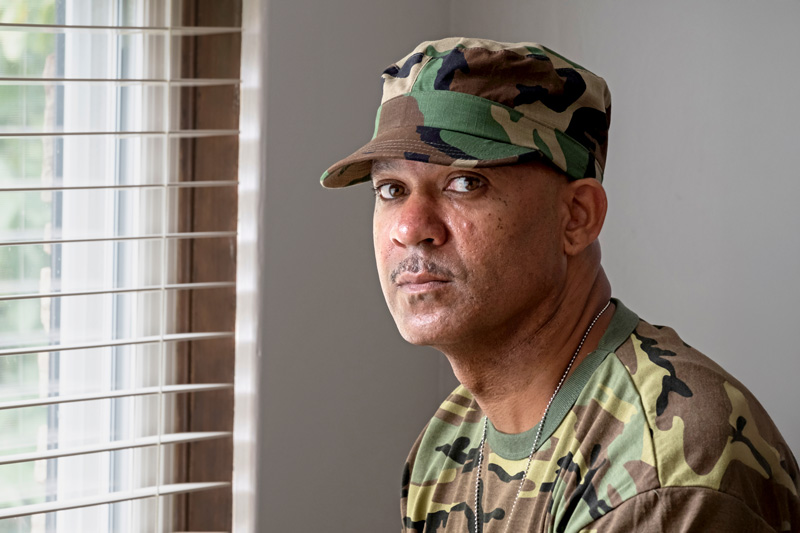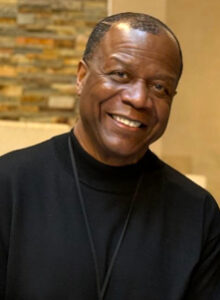When I returned from serving my country, I was a different person. My kids noticed I was distant, and I turned to alcohol and the party life to cope. Years of service had taken a toll on my mental health, and I no longer recognized the man in the mirror. For many veterans like me, the trauma and stress of service linger long after the uniform comes off. I was able to get help and slowly began to rebuild my life, but not every veteran is as lucky. My brother, also a veteran, never got the support he needed and lost his life to alcohol addiction. I’ve also witnessed so many friends and loved ones continue to struggle. I worry we will lose even more of our veterans, particularly Black veterans if we don’t face the reality of what’s happening to our nation’s heroes.

Barriers to Seeking Help
I know firsthand how easily addiction can take hold. Overseas, drinking and sometimes drugs became part of daily life for many of us, a way to escape the stress. But what feels normal there can break you when you return home. For years, I spiraled into unhealthy habits until I realized I had to stop if I wanted to be a good father and husband. Now, I dedicate my life to helping veterans navigate the VA and access care – many don’t even know the resources available to them. But for Black veterans, the road to getting help can be even harder. I often have to help them work through issues of trust, financial barriers, and stigma before we can take the necessary steps to access care.
Trust is a big issue in the Black community, especially when it comes to dealing with institutions that often don’t feel like they’re set up to include us. They don’t see themselves reflected in the services offered and don’t feel like their unique experiences are understood. Many have experienced racism and discrimination, both in and out of uniform, and are hesitant to reach out for help when their faith in the system is lacking.
There has been a long history of bias and misdiagnosis in healthcare, particularly affecting the Black community. For instance, studies show that Black and Hispanic veterans are more likely to receive an alcohol use disorder diagnosis than their white counterparts with similar drinking patterns, while the data actually show that Black individuals have lower rates of alcohol use by comparison. This kind of bias makes it even harder for Black vets to get the help they need, making them feel alone in the fight.
Financial struggles are a real problem, too. Some people have the means to get help, but a lot of the Black veterans I’ve reached out to struggle financially. Unfortunately, as anyone who’s experienced active addiction knows, when you’re in it, a great deal of your money goes toward getting substances, leaving few resources for help and perpetuating the cycle of addiction.
There’s also this stigma in our community that asking for help makes you look weak. There’s this idea that we must be strong and deal with it. Asking for help can feel like admitting you can’t handle your struggle. To worsen things, many believe that simply admitting they need help will result in incarceration or institutionalization, leaving them scared to seek treatment.
Breaking the Stigma Through Outreach
We have to break these cycles of mistrust and shame, and that’s where community outreach comes in. It’s about showing up, providing “boots on the ground” support, and proving we’re here to help. That’s why it’s important to have programs specifically designed to address the needs of Black veterans, led by people who really understand their experiences.
I want them to know I’m not just some outsider or part of a system that’s failed them time and time again. I’m one of them. I’ve been in their shoes and felt their pain, and I’m living proof that things can get better.
It’s not always easy. Some guys have their minds made up and don’t want to hear it. They shut down, brush you off, and keep on walking. I get it: I used to be the same way. That’s why I keep coming back and offering a little something—a brochure, a card, a listening ear—because sometimes that’s all it takes to spark that change. Eventually, I’ll catch them on a good day when they’re feeling a bit more open, and that’s when we can start to break the ice and really connect. Then, I can offer my help navigating the system and ensuring they know how to make it work for them.
I’ve walked this road, and I know there’s a better life waiting on the other end. But it starts with taking that first step. And when they do, I’ll be right there with them: not just with words, but with action, support, and doing the work.
To every Black veteran out there battling addiction or mental health challenges, I want you to know: You matter. You deserve a life filled with joy and purpose. Treatment can be your path to that life, and it won’t let you down. Your community, your brothers and sisters in arms, and a world of resources are waiting to support you every step of the way. You don’t have to struggle alone. You can take that first step.
Ted “Top” Price is a Veteran Community Liaison at American Addiction Centers, a nationwide provider of treatment for addiction and co-occurring mental health disorders.





